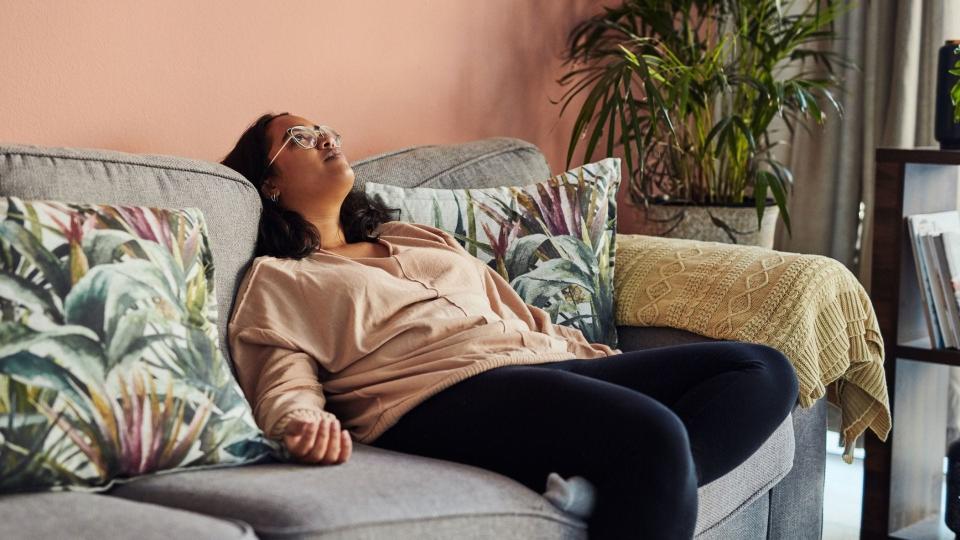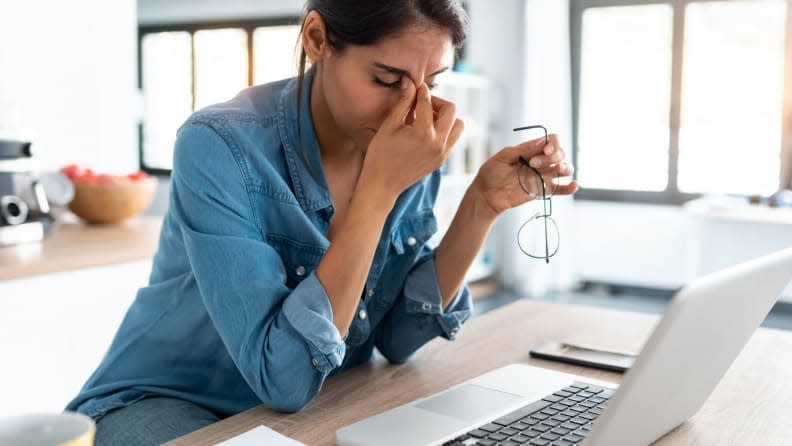From cravings to daytime tiredness, these subtle signs mean you may not be sleeping enough

— Recommendations are independently chosen by Reviewed’s editors. Purchases you make through our links may earn us a commission.
Though you’re unconscious for much of the night, what happens while you’re plastered to your mattress and snuggled up with your favorite pillow is deeply interconnected with your overall quality of life. Getting the right amount of sleep can completely change how you feel during the day.
There are the obvious signs of sleep deprivation. You just feel plain-old tired, or you know for a fact that you’re not meeting the generally recommended seven to nine hours of nightly rest. (Spoiler alert: More than a third of American adults don’t get enough sleep.) But what are some of the more discreet indications you need more zzz’s?
Need help finding products? Sign up for our weekly newsletter. It’s free and you can unsubscribe at any time.
You feel drowsy or have a slower reaction time

It’s normal to experience some sleepiness during the daytime—there’s a lull in your circadian rhythm in the afternoon. “There’s going to be a dip around 3 o’clock, regardless,” says Rebecca Spencer, a researcher at the University of Massachusetts Amherst who specializes in neuroscience and sleep.
But when you start feeling sleepy and it’s not in that typical siesta window, it could be a sign that you didn’t get enough sleep, she says.
“You should still be ‘on’ in the morning,” Spencer says. The same holds true in the evening before your usual bedtime, she adds. Really, if you're feeling tired any time that you typically don't, it's probably a red flag.
Not getting enough sleep can also result in grogginess or what Spencer calls “brain fog,” which is simply when you’re not thinking clearly. How that manifests can be different from person to person. You may feel as though a word is on the tip of your tongue, but you’re not quite able to grasp it, she says. You could also seem particularly forgetful—you look something up only to forget it within a few minutes. “It’s a general sense your brain is running at a slower pace,” she says.
Reaction time is also sensitive to poor sleep, according to Spencer. You may find yourself trying to grab the phone before the last ring and just missing it. These decision-making processes rely on two more intense cognitive functions. “It requires high level attention and requires cognitive control to know what is the task that I'm doing, and how to respond accurately and how to respond quickly,” she explains.
You more frequently give into cravings

Sometimes we all want that second or third piece of chocolate. But if you’re feeling extra inclined toward reaching for the bag of potato chips or Reese’s Cups, it might be because you’re tired.
“Just one night [of insufficient sleep] is enough to alter appetite and cravings,” nutritionist Dina Aronson says. “Sleep deprivation disrupts our normal, delicate balance of appetite-regulating hormones, which results in an increased desire for high-calorie, salty, sweet or fatty foods—even when we’re not hungry,” adds the director of nutrition programming at Diet ID, a a digital diet assessment and tracking platform. (Of course, there’s variation from person to person.)
Hormones leptin and ghrelin are the key players here—and they’re both tied to sleep. Leptin decreases your drive to eat following a meal. Ghrelin, in contrast, “increases appetite and is released when your blood sugar drops and your body needs food,” she says.
Studies have found that when you don’t get enough sleep, leptin levels in the bloodstream decrease, Aronson says. “The less leptin in your blood, the weaker your signal is to stop eating—which translates into increased hunger.” What’s more, a lack of sleep is also associated with higher levels of ghrelin, meaning you may feel hungrier when you’re sleep-deprived than in days following a perfect night’s rest, she says.

 Yahoo Autos
Yahoo Autos 